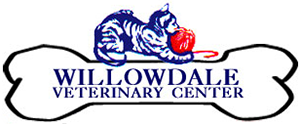Library
-
Interdigital cysts are a painful condition of swellings between the toes. They are commonly allergic in origin; however, many cases can be multifactorial. Diagnostic testing and treatments are recommended. Prognosis is generally good if the underlying disease can be well managed.
-
An intussusception is a condition where part of the intestine slides into another part of the gastrointestinal tract. It causes signs similar to intestinal obstruction, including poor appetite and vomiting. Some cases can be life-threatening. Although some non-surgical techniques may correct the problem, most cases require surgery and intensive care for a good outcome.
-
Miconazole topical is an antifungal used in the treatment of skin infections caused by yeast in cats and dogs. It may be used “off-label” or “extra label” for other conditions and in other animals. It may be specially compounded and/or combined into a formulation with other medications. Miconazole topical comes in a variety of forms.
-
Nutritional changes can improve the management and treatment of pancreatic diseases in dogs. To prevent chronic pancreatitis relapses, diet adjustments will be necessary. Diet factors for managing exocrine pancreatic insufficiency, diabetes mellitus, pancreatitis, and insulinoma are discussed. Recommendations for feeding diabetic dogs and approaching hypoglycemia are also described.
-
Stud tail, or tail gland hyperplasia, is a condition in which the oil glands near the base of the tail enlarge. This condition causes hair loss, excess accumulation of oils in the skin and on the fur, plugged hair follicles, and secondary infections. It is most common in intact male dogs, as these glands are under hormonal control, but any dog can be affected. Other hormonal imbalances and skin disorders can also cause this problem. Prognosis is generally good, especially if the underlying cause can be identified and controlled.
-
Telmisartan is an angiotensin receptor blocker (ARB) used to treat high blood pressure in cats and off-label to treat kidney disease in both cats and dogs. This medication is given by mouth in the form of a liquid or tablet. It may be given with or without food but is better absorbed if given on an empty stomach. Side effects may include vomiting, diarrhea, lack of appetite, low blood pressure, and decreased energy. There are several drugs that can contribute to adverse effects when given with telmisartan. Be sure to tell your veterinarian about any medications (including vitamins, supplements, or herbal therapies) that your pet is taking. If you suspect an overdose or an adverse reaction to the medication, call your veterinary office immediately.
-
Nutrition plays an essential role in treating and preventing urinary stones (uroliths). Since the diet can affect urine dilution, composition and pH, pet foods can be critical to the success or failure of treatment and prevention. Important factors are covered, such as the importance of water intake, diet composition, relative supersaturation (RSS) testing, and urinary diets.
